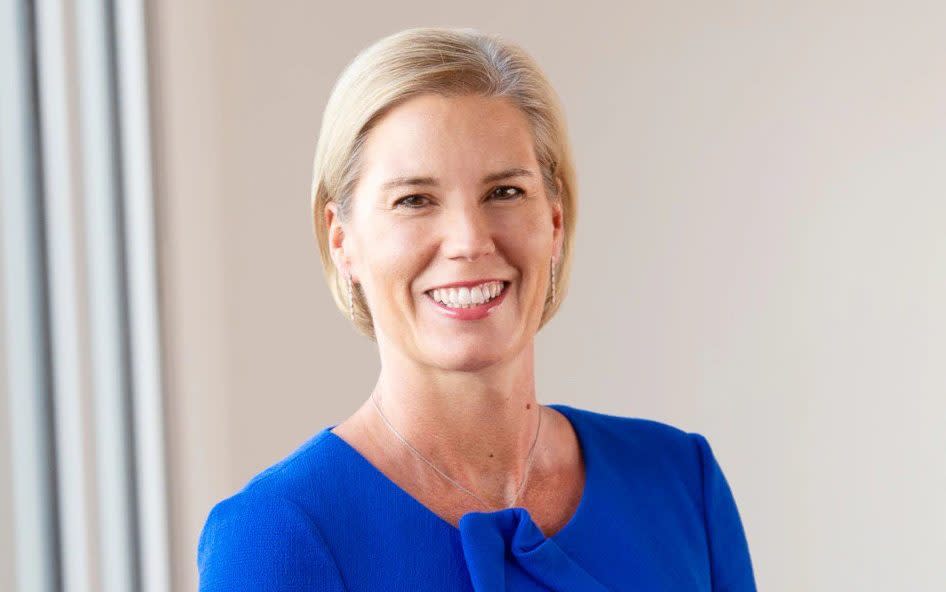Inside the race to run PwC

When political tensions run high and the House of Commons descends into infighting, leading executives like to emphasise that their world is different.
Populism has no place in professional life, they say. Such grubby electioneering is beneath the experts who manage the nation’s blue chip companies – and who do their books.
At PwC, about 1,000 partners will be hoping – perhaps nervously – that they are right. A leadership election is looming at the Big Four accountant’s UK practice, and the battle lines have already been drawn.
“Our job is to serve the brand, the business, for the future […] This firm is 175 years old. It’s all about legacy,” Kevin Ellis, the current holder of the position, told the Leadership Unplugged podcast last month.
However the 60-year-old is judged by history, his colleagues’ thoughts are already focused on who will replace him in charge of the partnership’s UK and Middle East offices.
The official shortlist of candidates is expected to be announced at the start of next month, after being finalised by an independent supervisory board made up of PwC partners.
Once it is published, the hustings process will begin. This is where hopeful contenders formally present their vision to voters, followed by an audience Q&A.
The process culminates in a vote by partners.
One clear favourite to win is Marissa Thomas, PwC UK’s chief operating officer. A lifer who has been with the firm since 1993, Thomas previously held two other management roles: head of tax and head of deals.

She’s understood to be campaigning on increasing profits shared between partners. This means raising revenue, but slashing costs where possible.
Thomas’s pledge will appeal to many UK partners whose income shrank last year after PwC spent millions on new technology and hiring additional partners.
These higher costs resulted in a drop in pay for PwC partners. They received payouts of £906,000 despite record revenues in 2023, having pocketed more than £1m in the previous year.
The second frontrunner is Marco Amitrano, PwC UK’s head of clients and markets.

Another career insider who has clocked more than 30 years at the firm, Amitrano is understood to be promising the opposite: further investment – such as AI and cloud technology – to fuel further growth.
Then there’s Laura Hinton, PwC UK’s tax leader and global relationship partner for FTSE 100 clients.
Described as an “outside bet, your dark horse”, Hinton is said to be hugely popular among voters because of her successful five-year run as PwC UK’s chief people officer.

She was one of the architects behind the company’s post-pandemic flexible working policy, which in 2021 allowed workers to choose their working hours and finish at lunchtimes on Fridays during summer months.
The final stand-out frontrunner is said to be Hemione Hudson, PwC UK’s head of audit. Some argue that Hudson’s position guarantees key votes within the firm’s audit division, who note it’s been nearly two decades since the business has been led by an auditor.
Ellis and his predecessor, Ian Powell, both rose through the ranks via PwC’s advisory practice.

All those involved have behaved themselves, but the election process undoubtedly has the potential to get ugly. Earlier this year, three of PwC’s US partners were stripped of their management roles for breaching election rules for the firm’s American practice. One was disqualified from the competition to run the US business.
PwC partners have been told to avoid spending too much time on the elections, with the firm keen on the vote taking place without distracting from day-to-day operations, according to a person familiar with the matter.
Some have argued that the election process was left too late. The winner is expected to be revealed in May, just weeks before incumbent Ellis will officially step down in June.
Instead, they believe the search for Ellis’s replacement should have coincided with the election of Mohamed Kande as PwC’s global chair last December.
It means that key questions around PwC UK’s next steps – from recruitment to investment – remain unanswered until a new leader is picked.
There will also be further uncertainty for colleagues and clients as the £16bn UK consulting market faces a year of stagnation, as retail, telecoms and pharmaceutical sectors reduce spending on consultants.
The global downturn in dealmaking will no doubt be a key priority for Ellis’s successor, who must figure out where the market is going and what services to focus on.
Weaker demand for advisory services has left Big Four firms overstaffed as clients cancelled projects and demanded lower fees in the face of economic uncertainty.
Last year, PwC responded by cutting up to 600 jobs targeted mainly at its advisory practice. However, more drastic measures may be required.
Deloitte is reportedly planning its biggest reorganisation in a decade, in which the firm will reduce itself down from five to four divisions.
The major cost-cutting measure is expected to simplify the business and allow partners to focus more on dealing with clients rather than managing staff.
Another key focus for PwC’s next leader will be improving audit quality.
The Financial Reporting Council last year dished out a record number of penalties for audit failures last year, including £7.5m to PwC over its work with defence company Babcock International and logistics giant Eddie Stobart.
The Big Four have sought to improve performance by dumping riskier clients onto challenger rivals, which in turn have been scrutinised over basic errors and unacceptable audits.
PwC’s investments last year into artificial intelligence-enabled chatbots to standardise and automate audit work will remove some of this pressure from partners.
Whoever takes over PwC’s UK operations will be faced with tough decisions about how much time and money to devote to the evolving area.

AI-enabled audits are not without their own regulatory risks either – internal checks and balances will need to be redrawn, especially with regulators so far being slow to take action.
There is also an ongoing debate within the Big Four about separating consulting and audit businesses, allowing consultants to take on more profitable work without having to worry about conflicts of interest.
Ellis has said that PwC previously considered the option soon after he was elected in 2016, but decided against it. EY’s failed $600m split last year, codenamed Project Everest, means that is unlikely to change that anytime soon.
However, the rationale behind EY’s abandoned break-up – attracting new funds to invest back into the business – will be hard to ignore.
And as recent private equity deals with accounting firms Grant Thornton and Baker Tilly show, there are plenty of investors wanting a piece of the market.
Fiona Czerniawska, chief executive and founder of Source Global Research, said: “If you were a partner looking to get elected in the current environment, you would need to have some strategies for how the firm, both in its parts – so consulting versus audit versus tax – but also as a whole, is going to find the money to be able to invest in technology in the way that clients expect.”
Grand plans may be at the heart of each candidate’s vision. But the partners making the choice are likely just praying that the fight stays clean.
